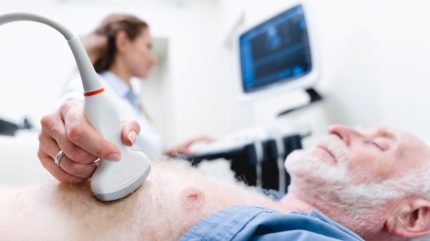
Edgewise Therapeutics has announced positive top-line findings from two clinical trials where its EDG-7500 showed benefit as a potential treatment for obstructive hypertrophic cardiomyopathy (HCM).
The data comprise results from a Phase I trial in healthy subjects and the single-dose arm of the Phase II CIRRUS-HCM trial.

Discover B2B Marketing That Performs
Combine business intelligence and editorial excellence to reach engaged professionals across 36 leading media platforms.
An oral, selective modulator, EDG-7500 is designed to address cardiac relaxation issues associated with HCM.
In the placebo-controlled Phase I single ascending dose (SAD) trial, healthy subjects received single doses of EDG-7500, ranging from 5mg to 300mg.
The multiple ascending dose (MAD) portion saw subjects receive 25 to 100mg once daily for 14 days.
In the trial, EDG-7500 was found to be well-tolerated without any significant changes in vital signs, clinical chemistry, haematology, or electrocardiograms.

US Tariffs are shifting - will you react or anticipate?
Don’t let policy changes catch you off guard. Stay proactive with real-time data and expert analysis.
By GlobalDataNo meaningful changes in left ventricular ejection fraction (LVEF) were reported for all SAD and MAD subjects across a broad range of EDG-7500 exposures.
In Part A of the CIRRUS-HCM trial, patients with obstructive HCM received a single dose of 50mg, 100mg, or 200mg of EDG-7500.
Edgewise dosed the first subject in the Phase II CIRRUS-HCM trial of EDG-7500 to treat obstructive HCM, in May this year.
In the trial, a 67% mean reduction in resting left ventricular outflow tract pressure gradient (LVOT-G) and a 55% mean decline in provokable LVOT-G were reported in patients who were given the 100mg and 200mg treatment doses.
Furthermore, 60% of the subjects attained LVOT gradients below 30mmHg at rest and below 50mmHg with Valsalva after receiving 100mg or 200mg of EDG-7500.
Significantly, the gradient reduction was attained without causing a meaningful change in LVEF.
A 200mg single dose of EDG-7500 also led to a 64% mean reduction in NT-proBNP, a biomarker of heart failure.
Edgewise Therapeutics president and CEO Kevin Koch said: “We believe our innovative approach, where we have observed gradient relief without reductions in LVEF, has the potential to be a valuable advancement in the treatment of obstructive HCM.
“We expect to report initial 28-day data in the first quarter of 2025.”





